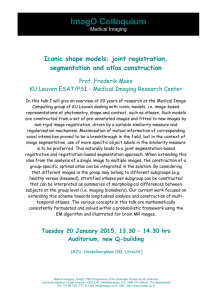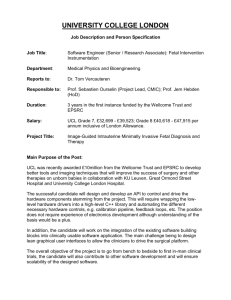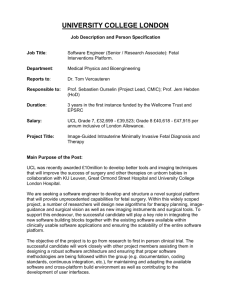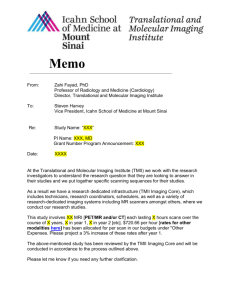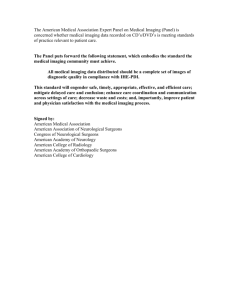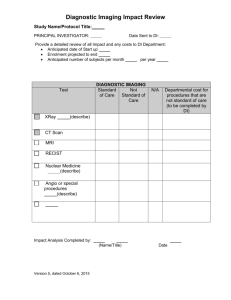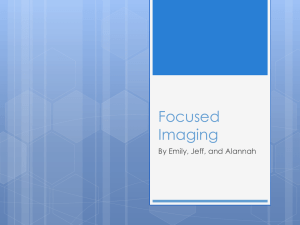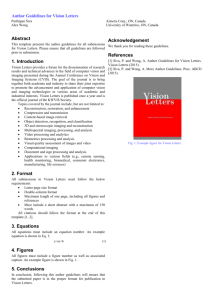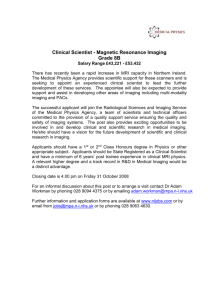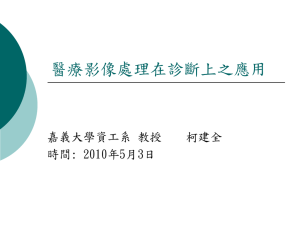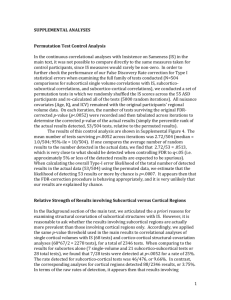UNIVERSITY COLLEGE LONDON - Translational Imaging Group (TIG)
advertisement
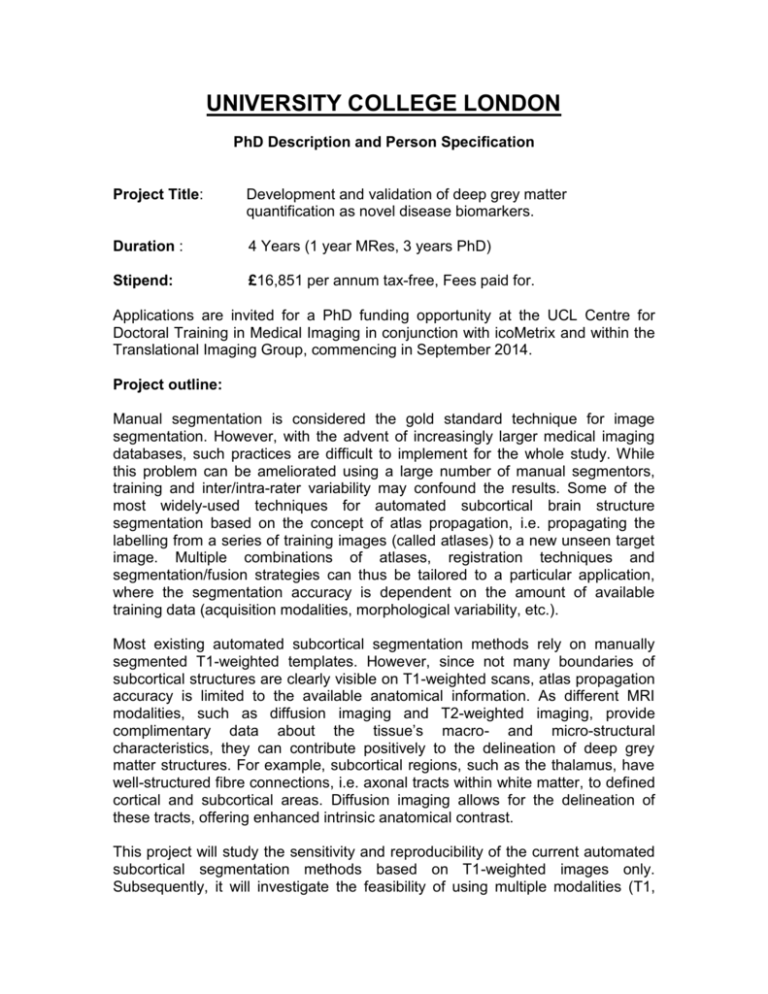
UNIVERSITY COLLEGE LONDON PhD Description and Person Specification Project Title: Development and validation of deep grey matter quantification as novel disease biomarkers. Duration : 4 Years (1 year MRes, 3 years PhD) Stipend: £16,851 per annum tax-free, Fees paid for. Applications are invited for a PhD funding opportunity at the UCL Centre for Doctoral Training in Medical Imaging in conjunction with icoMetrix and within the Translational Imaging Group, commencing in September 2014. Project outline: Manual segmentation is considered the gold standard technique for image segmentation. However, with the advent of increasingly larger medical imaging databases, such practices are difficult to implement for the whole study. While this problem can be ameliorated using a large number of manual segmentors, training and inter/intra-rater variability may confound the results. Some of the most widely-used techniques for automated subcortical brain structure segmentation based on the concept of atlas propagation, i.e. propagating the labelling from a series of training images (called atlases) to a new unseen target image. Multiple combinations of atlases, registration techniques and segmentation/fusion strategies can thus be tailored to a particular application, where the segmentation accuracy is dependent on the amount of available training data (acquisition modalities, morphological variability, etc.). Most existing automated subcortical segmentation methods rely on manually segmented T1-weighted templates. However, since not many boundaries of subcortical structures are clearly visible on T1-weighted scans, atlas propagation accuracy is limited to the available anatomical information. As different MRI modalities, such as diffusion imaging and T2-weighted imaging, provide complimentary data about the tissue’s macro- and micro-structural characteristics, they can contribute positively to the delineation of deep grey matter structures. For example, subcortical regions, such as the thalamus, have well-structured fibre connections, i.e. axonal tracts within white matter, to defined cortical and subcortical areas. Diffusion imaging allows for the delineation of these tracts, offering enhanced intrinsic anatomical contrast. This project will study the sensitivity and reproducibility of the current automated subcortical segmentation methods based on T1-weighted images only. Subsequently, it will investigate the feasibility of using multiple modalities (T1, T2/FLAIR, diffusion) to better segment various deep grey matter sub-structures and learn better image-derived surrogate biomarkers for neurodegenerative diseases and Central Neural System Diseases (CNS). The project favours incorporating the different modalities into a unified generative model of anatomical brain data. Model priors, such as spatial anatomical priors, T1 means and variances, and DWI diffusivity & directionality, will be derived from previously acquired and manually segmented data, available through the Dementia Research Centre. These priors will then be used to constraint the ill-posed problem of multimodal image segmentation. Overall, by combining all this highlymultimodal data into a joint segmentation model, this project will improve on our ability to automatically label and characterise subcortical regions-of-interest, enabling the development of better imaging-based pathological biomarkers. To apply: To apply for this post please e-mail: applications@medphys.ucl.ac.uk . Please include: 1. Cover letter explaining why you feel suitable for this post and background. 2. CV 3. Names and contact details of 2 academic or work referees The studentship compromises of fees and a tax-free stipend of £16,851 per annum. In order to qualify candidates must be UK/EU passport holders or qualify for UCL home fees status. For more information about the UCL Centre for Doctoral Training in Medical Imaging please go to: http://www.ucl.ac.uk/imaging-cdt For more information about the Translational Imaging Group: http://cmictig.cs.ucl.ac.uk/ and icoMetrix: http://www.icometrix.com/ If you wish to discuss this opportunity, please contact Prof. Sebastien Ourselin (s.ourselin@ucl.ac.uk ) but please note applications need to be submitted using the above instructions. Deadline for applications: Wednesday, July 16th, 2014. Interviews will be between July 21st and 31st. Person Specification: Essential Knowledge, Education, Qualifications and Training Upper Second Honours degree (or equivalent) in Physics, Engineering, or Computer Science. *** Skills and/or Abilities Strong mathematical abilities *** Strong problem solving abilities *** Good understanding of the physical basis for medical imaging (MRI, Ultrasound) *** Ability to develop computer object-oriented software using C++ and python *** Understanding of the principles and practice of digital image processing and medical image analysis *** Ability to work effectively within a collaborative environment *** Proficiency in MATLAB programming *** Excellent written and spoken communication skills in English. Experience *** Experience of algorithm and software development for medical image analysis, digital image processing or computer vision. *** Other requirements Strong interest in medical image analysis and the application of imaging technology to solving medical problems *** Desirable
